
Instant Happiness
Whether you’re just having a down day or a down life, taking a walk can instantly lift your mood—especially when you go outdoors. Not only can walking make you less depressed, but according to a study published in the Archives of Internal Medicine, depression sufferers who took a daily walk showed just as much improvement in their symptoms as people on medication. In fact, 60 to 70 per cent of the subjects could no longer even be classified as depressed. And a follow-up study found that the mood boost from the walk lasted longer than that of the medication.
Find out 40+ more everyday habits for a happier life.

Off-the-Charts Creativity
Stumped for an idea? Take a quick stroll around the block. Whether you need a solution to a problem at work or you’re looking for inspiration for your novel, walking gets your creative juices flowing in all areas. A recent study published in Frontiers in Neuroscience found that walking improved both convergent and divergent thinking, the two types associated with enhanced creativity.
Here’s why you need to go for a walk every single day.

Allergies Be Gone
Sidelined by sneezing, sniffling and itchy, watery eyes, thanks to all the pollen in the air? Your instinct may be to close all the windows and hide until winter, but your instinct could be wrong. According to a Thai study, researchers found that walking or running—even for just 15 minutes—can reduce sneezing, itching, congestion and runny nose by up to 70 per cent.
Check out more solutions for seasonal allergies worth trying.
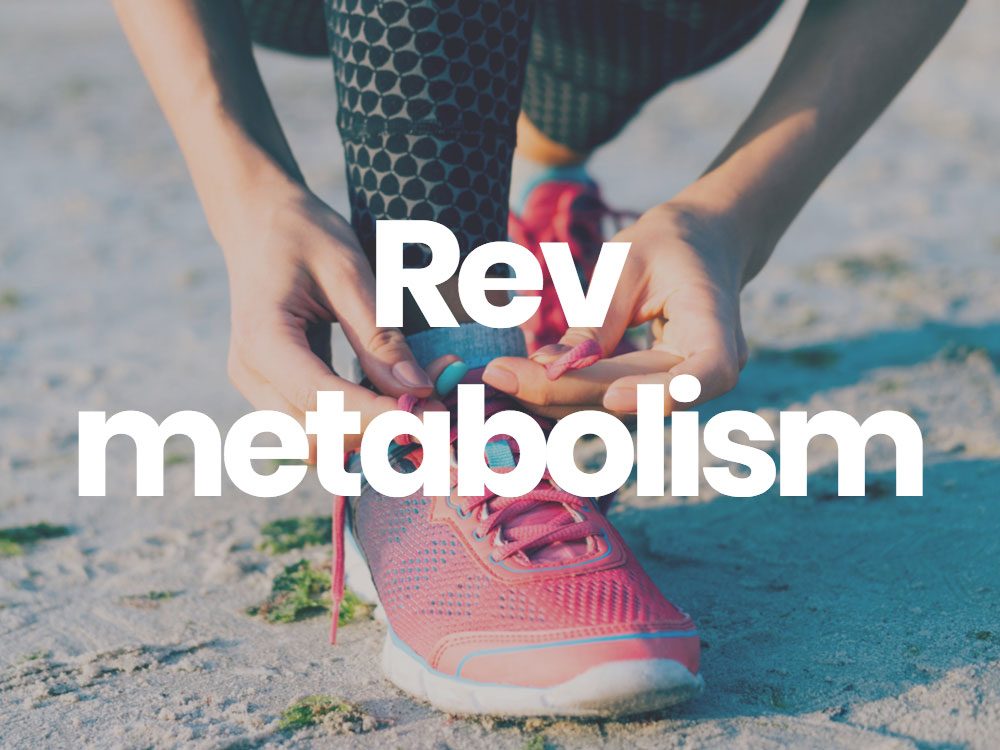
Metabolism to the Max
Metabolic syndrome—the evil trifecta of increased blood pressure/cholesterol, high blood sugar, and fat around your waist—is one of the worst side effects of our sedentary lifestyle. It signals diabetes, heart disease, and even early death. But we have an old-fashioned cure to this modern-day disease: exercise. Any cardio exercise, including walking, can stop metabolic syndrome and even reverse the damage, according to a study published in Circulation. But intensity is the key to revving up your metabolism. Rather than just taking a leisurely stroll, try alternating walking fast and slow.
Find out more simple ways to boost your metabolism.
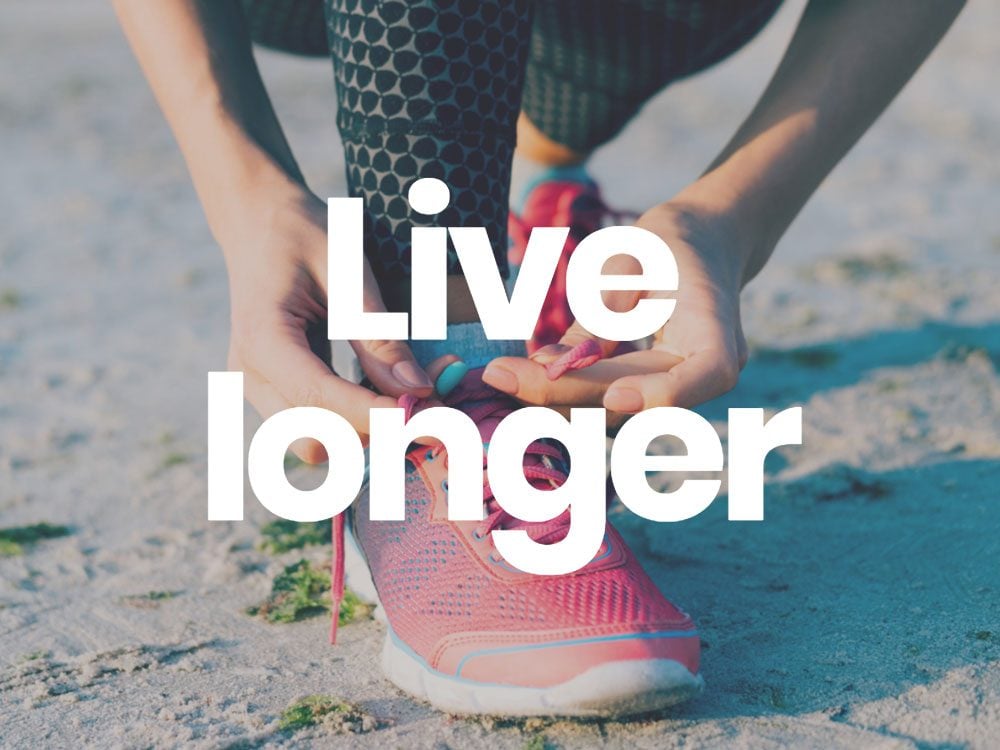
Seven Bonus Years?
Want to live longer? Walk. Research has shown that you can add up to seven years to your life by exercising daily, regardless of what you weigh. Even better, those extra years will be good ones as folks who walk are happier. A separate study found that people who exercise report feeling happier, more excited, and more enthusiastic about their future than their couch-potato brothers.
Here’s more advice on how to live to 100—and love it!

Cash in the Bank
Fitness can be pricey! Money for a gym membership, home exercise equipment, workout clothes, and shoes adds up fast. But it doesn’t have to. Walking needs absolutely nothing to do it but still provides great health benefits.
Psst—these everyday household items double as fitness gear!

Nature’s Anti-Wrinkle Cream
The fountain of youth exists—but you’re going to have to walk to find it. And we mean that literally. People who walk regularly not only look younger than their age (as long as you’re remembering your sunscreen!) but they may also be younger on a cellular level, according to research published in PLOS One. The scientists found that cardiovascular exercise, like walking, can preserve or even lengthen your telomeres, the parts of our DNA that shorten as we age. Who’s worried about wrinkles now?
Find out the best foods for healthy skin that glows.
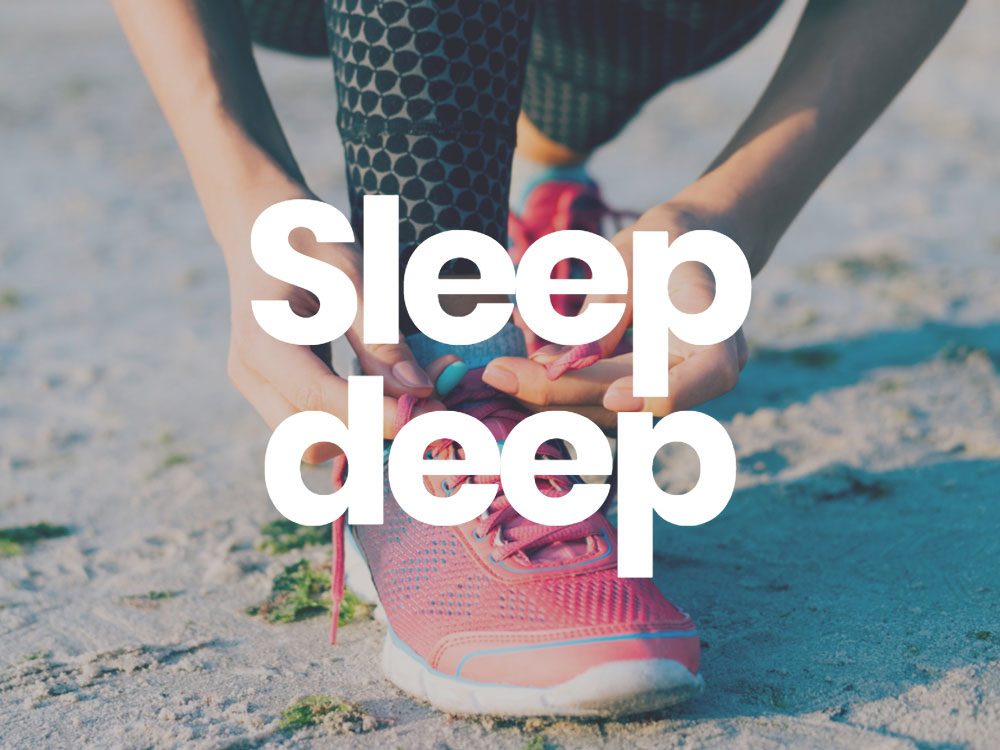
Zzzzzzzzzz….
Getting a solid eight hours snoozing in the sack is one of the most important things you can do for your health. But sometimes that’s easier said than done. Thankfully a brisk walk is basically Ambien, minus the pill. In a large meta-analysis of sleep studies, researchers found that regular walkers had longer and better quality sleep. And for those unlucky few who still had insomnia? Walking helped reduce the number of sleepless nights they experienced.
Here are 19 more things you can do throughout the day for a better night’s sleep.
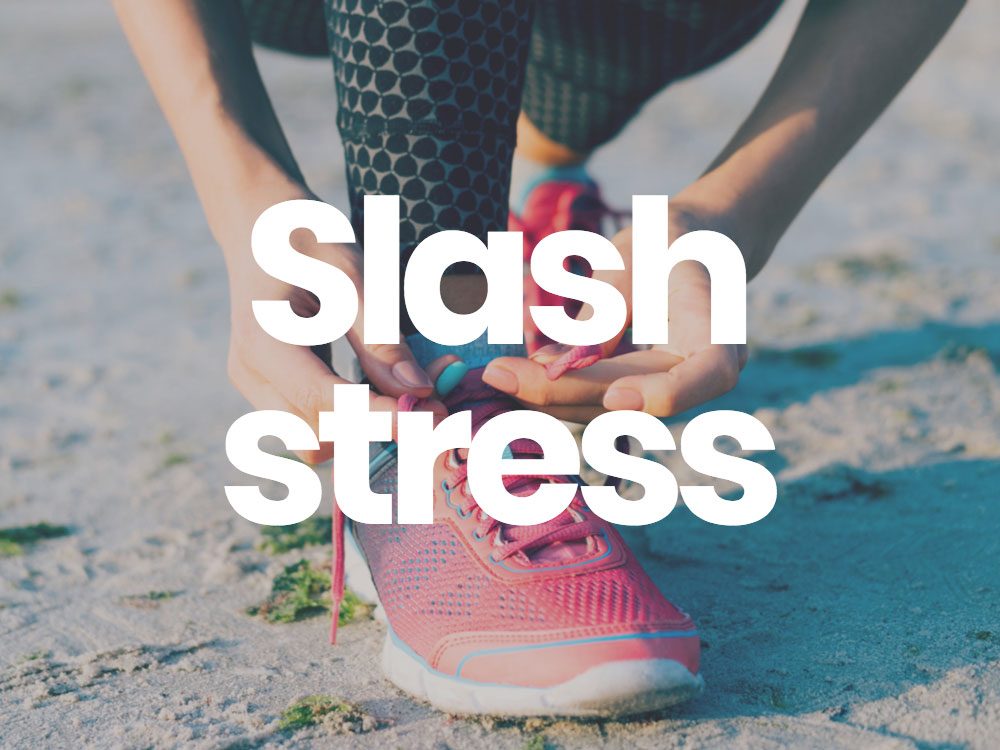
Keep Calm and Carry On
Raise your hand if you’re stressed out. OK, OK, put both your hands back down. Most of us struggle with stress every day, and over time, that takes a serious toll on our mental and physical health. But science says one of the benefits of walking is it’s one of the fastest, most effective ways to calm down. Moving clears cortisol, the “stress hormone,” out of your system and also helps stop that endless stream of worries going through your mind, according to a study published in The American Journal of Cardiology.
Find out more stress management tips from the pros.

Banish Brain Drain
It’s official: Walking is as good for your brain as it is for your body. A comprehensive study of the effects of exercise on the brain found that it benefits all aspects of your mind, including memory, cognition, learning, reading and it even increases the size of your brain to boot. Even better, walking protects your brain by lessening your risk of getting cognitive illnesses like Alzheimer’s disease and dementia.
Check out 20+ healthy habits proven to boost brain health.

A Drug-Free Painkiller
Chronic pain has been called a silent epidemic. If you’re one of those people battling daily pain the last thing you probably want to do is get up and go for a walk. But researchers found that moderate walking improved chronic pain in people, both in the short term and the long run, even if the underlying condition remained uncured. The pain relief benefits of walking may not be able to cure chronic pain, but it can help you deal with it better.
Check out more pain management tips for everyday aches and pains.
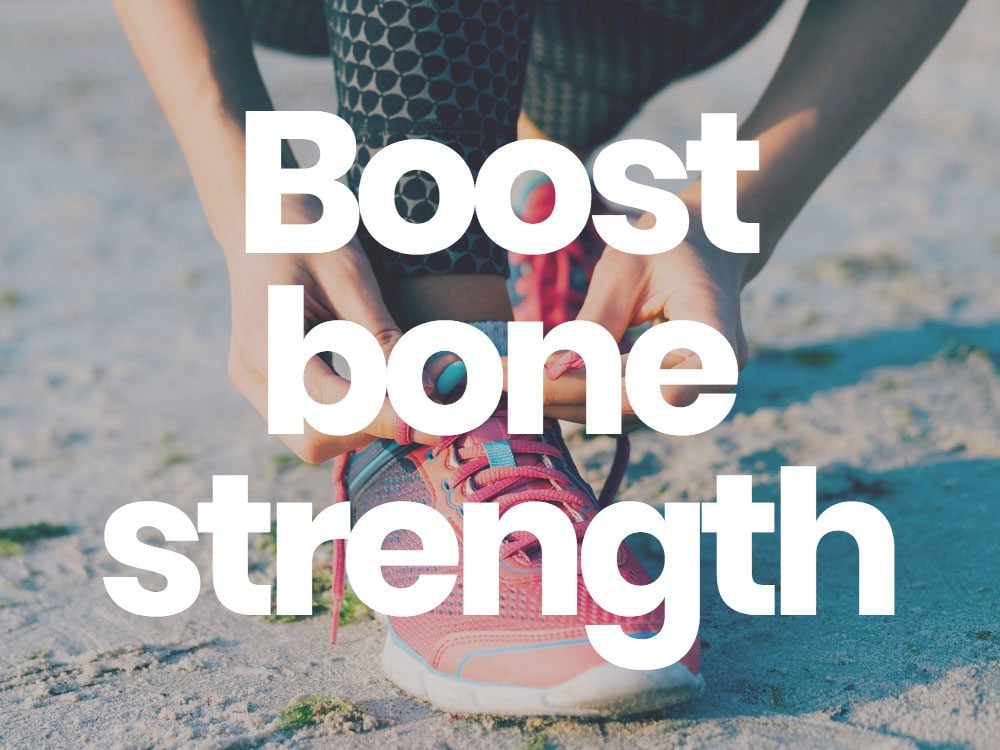
Beefed-Up Bones
Bone density may not be one of the most exciting health benefits of walking, but it’s an important one. People with stronger bones avoid osteoporosis and all the problems that come with it like fractures, disability, and spine shrinkage (seriously, you can get shorter). And the best way to get strong, healthy bones is by doing weight-bearing exercises like running, dancing and, yes, walking, according to a large study done by Oxford. But when it comes to bones, it’s definitely use it or lose it: To keep your bones strong you have to keep exercising. The researchers found that adults who walked regularly had better bone density throughout their lives than their inactive friends.
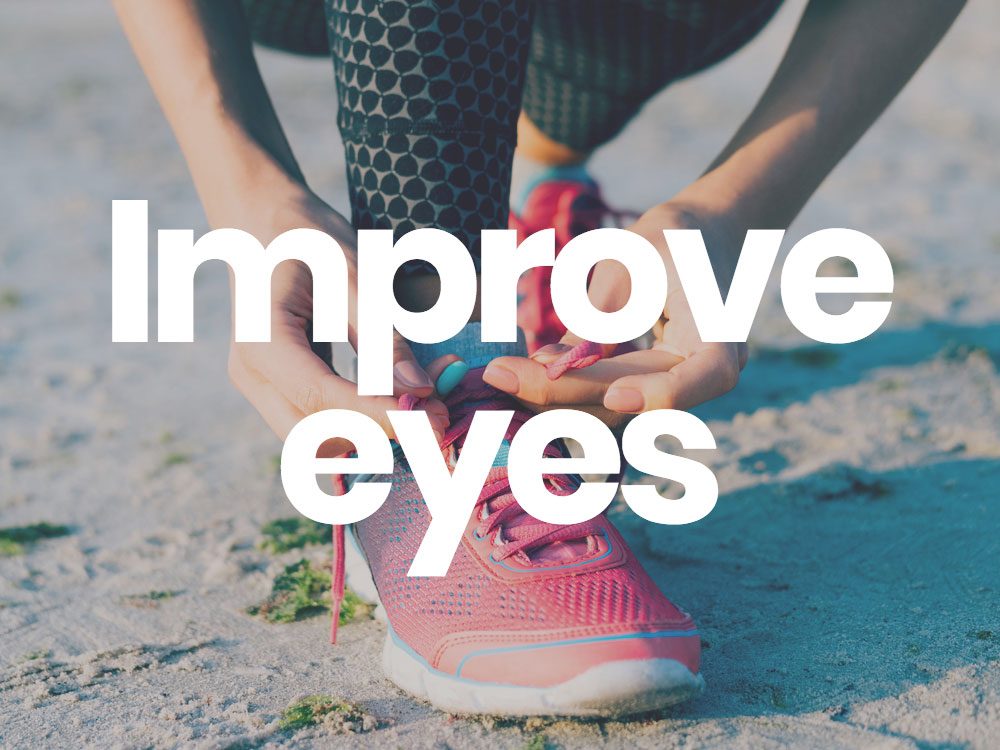
Protect Your Peepers
OK, so maybe you won’t have the ability to see through walls, but you can protect your vision as you age by taking a daily walk, according to a study published in the Journal of Neuroscience. Researchers found that people who did regular aerobic activity had healthier eyes and were less likely to suffer from problems like retinal degeneration and age-related vision loss. So even if you aren’t Superman, you’ll still have super sight!
Here are the walking mistakes you didn’t know you were making.

Quality Time with Loved Ones
Taking a walk alone can be great for clearing your head or letting off steam, but it also provides a great opportunity to bond with friends and family—far away from electronics and other distractions at home. Even better, you set a powerful example because when they see you reaping in the benefits of walking, they’ll be encouraged to walk more, too, according to a study published in Psychology of Sport and Exercise.
Can’t find the motivation to move more? Here’s how to make walking less boring.
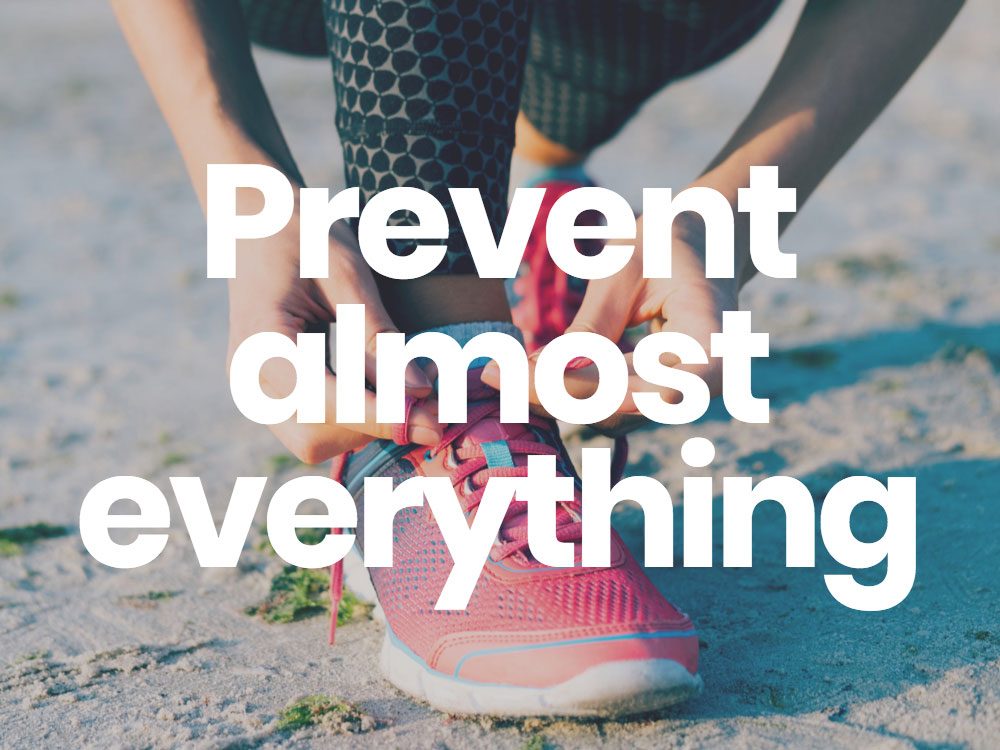
Free Miracle Drug
Exercise has been called a “miracle drug” for its ability to help reduce your risk for cancer, diabetes, heart disease and many other illnesses. Let’s be honest, there doesn’t seem to be a single health condition that it can’t benefit in some way. And unlike real drugs, walking has no side effects, is easily accessible, affordable, effective, and best of all, you don’t need a prescription!
Now that you know the benefits of walking 15 minutes a day, find out what happens to your body when you increase that goal to 10,000 steps a day!